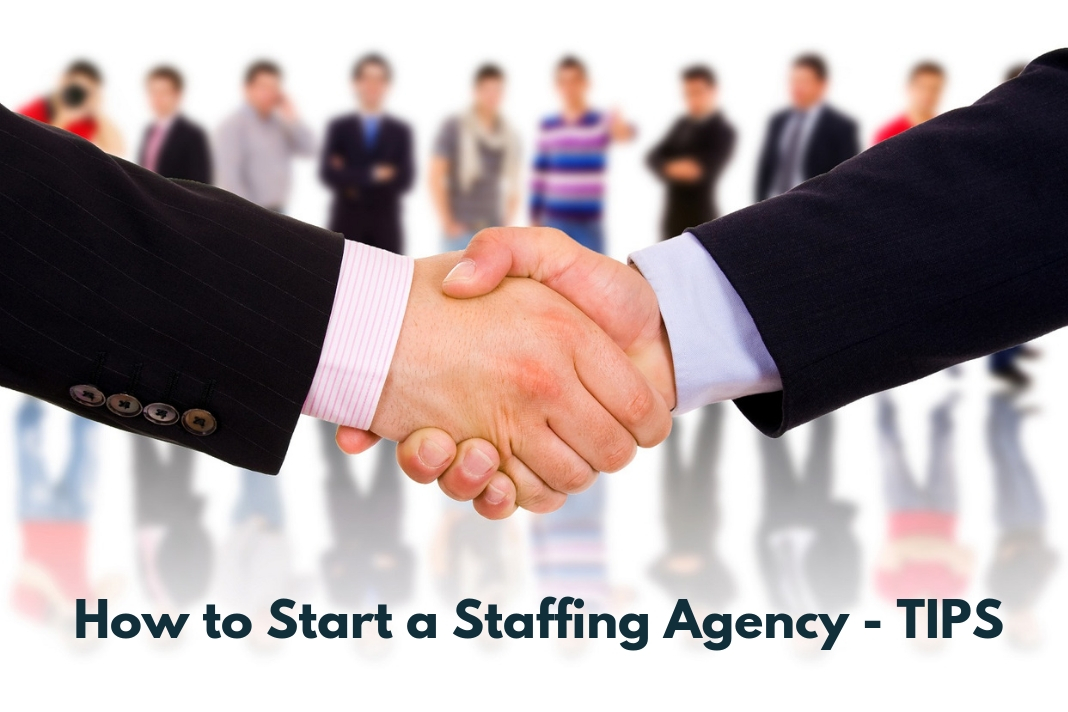
Staffing is one of those business functionalities that can give even a sane man headache. Staffing can be the most challenging part of business development, but having the right sources and the right human resource team can make this entire process seem like a cakewalk. If you have an impeccable experience in the staffing industry for several years and have contributed your skills to fill in job orders with best possible candidates, then why don’t you start a staffing agency yourself and become ‘that right human resource team’ that most businesses and corporates look for?
Have you considered the staffing business, but not sure how to go about it? Well then, here is a rundown on the steps required to start a staffing agency in a simple manner.
Your staffing business plan will seem pretty straightforward because you may not need a heavy start-up cost; in fact, you can start this business right in your home and eliminate the overhead cost.
So, let’s get started with this.
First, Know About the Staffing Industry
Staffing services entail three major elements, namely the employers, that take qualified candidates as employees, the business, where the staffing service make money by providing expertise to business clients, and the contractors, who are the temporary help that provides business organizations with employees for all positions for employment in the organization.
Types of Staffing Services You Can Choose From
Temporary Staffing Services: Takes up the largest meat in the staffing industry. In here, you will be hired to provide client companies with staff for a short time basis. The need arises when companies have to fill in for absent employees or increase the number of staff during peak business season.
Long-Term Staffing Services: This is also known as ‘Facility Staffing’ where you will be responsible for recruiting employees for a particular assignment or project. This type of staffing is usually practiced for more professional and technical requirements.
Temporary to Permanent Staffing Services: This works along with temporary staffing services in which you offer clients with temporary worker and if the client wishes, he can hire the worker on a permanent basis.
Nowadays all staffing agencies cater to all these types of staffing rather than focusing on one. In fact, you can even offer a personalized staffing solution based on customer preference and budget.
Now, let us jump to the process
Step 1: Choose Your Niche
Just because you have knowledge in the HR industry, it doesn’t mean you can provide service in all sectors. In order to serve a particular niche, you need to know the niche; you should understand the specific skill set and the underlying qualifications required for the industry. Therefore, you have to select a staffing niche that you are most comfortable in, which you have considerable knowledge about, and which sees steady demand for employees. While considering your niche, you also have to think through certain other factors, such as your competition, the market size, the availability of candidates, and the location. Make sure you do some research about your chosen niche and keep two or more options ready, lest you end up at a closed door in your first pursuit.
Step 2: Get Legal Help from the Right Professional
You have to do a lot of paperwork for clients and job seekers, and a large amount of the investment for your new staffing company will go into getting the legal advice to ensure due diligence in the documentation. Your legal counsel will comprise of many professionals from different sectors, such as finance, income tax, accounting, provident fund, ESI, pension and so on. You have to make sure that the counsel you seek for advice understands staffing and the provincial legislation surrounding it. Some of the major documents for which you may have to seek counseling and advice include:
- Employment Agreements
- Client Service Agreement
- Health and Safety Policy
- Disciplinary Policy
- Termination Clauses
- Layoff Clauses
- Workplace Violence and Harassment Policy
Step 3: Secure Your Payroll Finance
As a staffing agent, you will have to staff employees for your own agency as well. Most start-ups forget to secure funds for the payroll of their own employees. Usually, it takes 45 days since the invoice date to receive the payment. Therefore, until your clients start paying for your services, you will be responsible for paying your workers from your pockets. You have to make sure that you have sufficient funds to survive in the business, for at least the next six months, until you start generating profit. One of the most important aspects that determine the success of your staffing firm is possibly securing the payroll finance.
Step 4: Get a Business Insurance
Business insurance will give you sound sleep and worry free nights. A solid insurance will protect you, your clients, your personal assets, and ultimately, your business in case your business faces any legal issue, or in case a mishap takes place while working at clients’ location. While it is important that you secure your business liabilities with an insurance coverage, it can be a costly affair if you don’t elect for the right kind of policy.
Make sure you personalize your insurance coverage based on your staffing services. Talk to an insurance consultant who has knowledge about the staffing industry and who is ready to assist in getting you the right kind of policy for your business. Ensure that you cover every type of scenario while purchasing your insurance coverage.
Step 5: Do Research on Your Clients
Basically, we are asking you to do a credit check on your new clients. Staffing businesses run on client’s payments. Most companies, in a hurry to grow their business and in the excitement to fill in more clients, often forget this crucial business step. Credit checking is a practice of finding out how many days does it takes for clients to clear invoice on average. It is also done to find out if the client is under any financial stress. If your client doesn’t pay you on time, you will soon be out of payroll money and out of profit too. So, you don’t want to provide service for free right? The best way to stay on the safer grounds is to research, screen information from different sources, and then arrive at the right decision.
Step 6: Raising Your Start-Up Capital
Now that you are aware that you would need funds to not only start the staffing agency but also to survive for at least a year, you will have to look after your financial position and see how you can raise your start-up capital. Funding for your start-up business is pretty simple these days. Here’s what you should do: have a good credit history, prepare a solid business plan (which will include your business goals, mission statement, vision, marketing strategies, clients’ information, and future growth opportunities), and apply for bank loan.
Some banks ask for a graphical representation of business plans. Make sure that you have slides ready before approaching your bank.
Your start-up cost will depend upon the size of your company, the niche industry you will be operating in and the geographical location. Crowd funding is another option through which you can raise your capital for business. Apart from start-up costs, you will also have to think about the recurring expenses, such as rent, fuel, payroll, bills, etc. when strategizing your financial plan.
Step 7: Strengthen Your Operations – Get an Applicant Tracking System
You will have a front office where you will be dealing with clients, employers, and candidates. Most of your dealings will be done either on phone or face-to-face. In the beginning, you may have to fill in the roles of a staffing team, including that of recruiters, career counselors, coordinators, interviewers, and selectors. However, with time you will have to bring in more temp workers to fill in the various positions.
Once your staffing service is running successfully, and when you are no longer sitting at your desk waiting for the phone to ring, you will need a more meticulous system to track applicants, conduct tests, and screen certificates of candidates. You will also need a system that keeps track of client calls and requests.
Therefore, an applicant tracking system becomes imperative during the growth stage of your business. You need an applicant-tracking tool to make the staffing and recruiting process streamlined and efficient. You can either customize a tracking system to suit your business needs, functionality, and support or go for the standard ones that are available in the market.
Step 8: Marketing Your Staffing Business
You can make your staffing business a hit by just using traditional advertising. Cold-calling corporates and clients, face-to-face marketing, brochures, newspaper, and trade journals are few essential marketing tools for staffing companies. However, you should also use the current marketing technique, such as the internet, and put it at your best use. You can post various ad campaigns on different industry-specific websites and social media handles. The internet can help you target a particular type of companies or niche client.
If you the love the industry, enjoy the pressure and find challenge in the drill, then starting a staffing agency should not be very difficult for you. Success is accompanied by bumps and bruises. So, don’t step down if your knees hurt, just follow each step and plan each action carefully to build your mini-empire. Do share your success journey in comments below.




